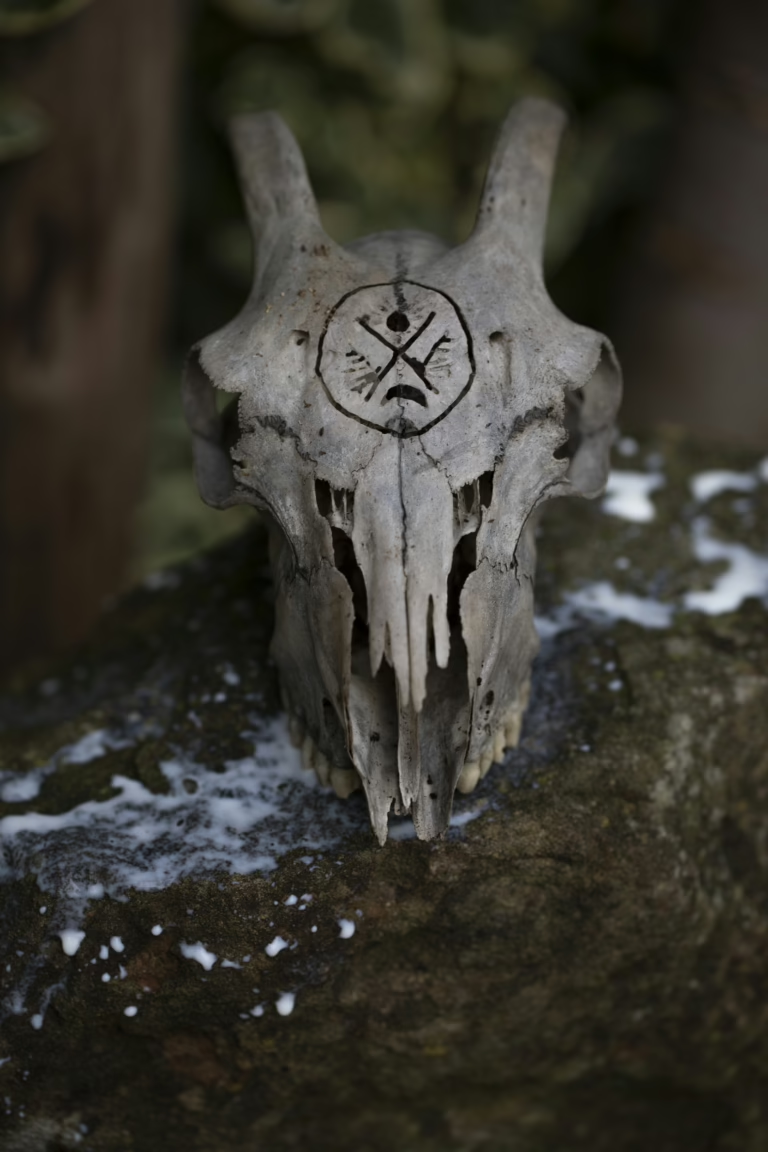
Newsletter Subscribe
Enter your email address below and subscribe to our newsletter

Enter your email address below and subscribe to our newsletter


Exploring Scottish Folk Practices and Traditions
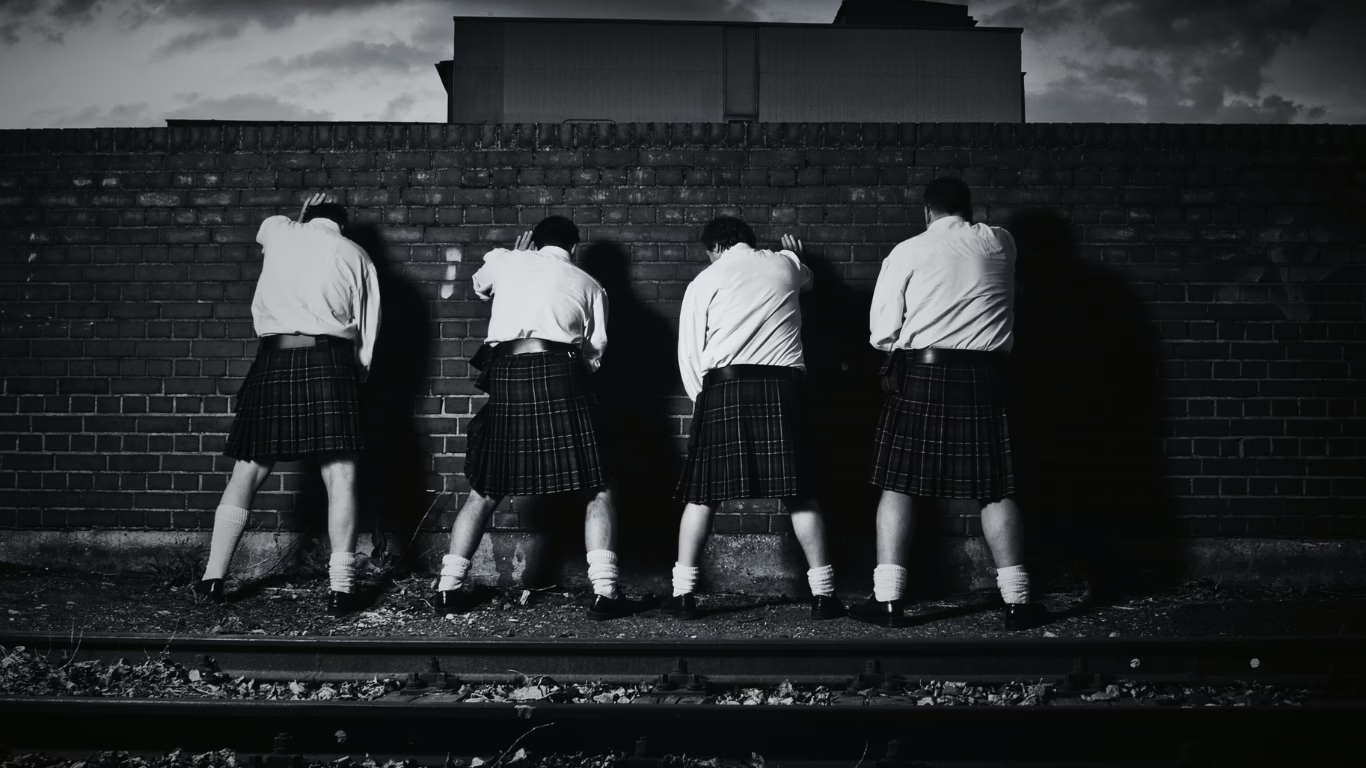
I have written a lot about my views on Scottish spirituality and folk belief before, but I’ve never really spelled out the position – why of things. I’ve explored Scottish cultural appropriation and appreciation through a story you can find here and I’ve touched on Scottish cultural appropriation a wee bit here but having been sitting with these ideas and thoughts for as long as I’ve been writing about it, I feel now is a time to be bit more prescriptive about my feelings around this and where I find myself positioned in these discussions.
I no longer want to discuss cultural appropriation in abstract terms but in concrete terms in how it affects me. This thought piece was written following a conversation on the Witchcast podcast , which is a more light hearted conversation around some of these ideas. The writing that follows is strongly opinionated in places and it’s a bit of a bumpy ride so hang in there.
I’m Scottish born. I’m also a quarter English and part Welsh, Irish and Scandinavian. Pretty much your standard DNA profile of most people in Scotland, I’m sure. I class myself as a native Scottish person. I have lived all over the British Isles but longest in Scotland in both the lowlands and the gateway to the highlands. I don’t claim to speak for all Scottish people or be an expert on this, but I often find myself in a weird liminal space when it comes to what I do and the position I find myself in between witchcraft, paganism, academia, and community and Scottish Cultural Appropriation. I’m just speaking from my one small corner of this island and representing the research I do, I’m sure you have your own take on this.
Cultural appropriation is a bit of a misused and overused phrase. Cultural Appropriation is a term used when people take from a culture for their own gain – this could be social media clout, capital or social gain or anything giving an edge over others. At its heart is represents an imbalance in relationship between cultures. Where appropriation exists one party is taking and another is being taken from. It’s a form of cultural violence. There is a difference between cultural appreciation and appropriation.
noun: cultural appropriation; plural noun: cultural appropriations
Oxford English Dictionary
- the unacknowledged or inappropriate adoption of the customs, practices, ideas, etc. of one people or society by members of another and typically more dominant people or society.”
We live in this incredible time where the Internet has allowed us access to share with so many different cultures, ideas, myths, practices, and traditions. It’s incredible. This connectivity helps us to grow and appreciate so much more – though good and the bad – but at the same time ontological filters that would ensure true representation to the culture it has come from are sometimes lacking.
If cultural sharing is done well, it enhances everyone involved. Cultures are permeable – they flow into other cultures around them. It happens all the time. I personally think Scotland has experienced a lot of this. We are a big melting pot on a thumb print of an island in the vast sea. Island cultures will always be subject to cultural blending. Cultural exchange when done well enlivens, enriches, widens, and broadens our understanding. Cultural appropriation is a problem especially when the culture who are doing the stealing is antagonistic to your own as its laid out in the dictionary definition. There are times where this sharing is done very badly and leads to misrepresentation or for aggrandisement and gain. Let’s say someone misrepresents your culture, say Scottish culture and folk traditions in a way that misrepresents my people and my history. This is something I come across a lot. It not only starts to rewrite my culture as it’s shared over and over but also distances and harms a culture that’s been subject to this repeatedly.
I think this needs some explanation as to why it is problematic to Scotland and Scottish folk practice.
I’m going to start with an example of two texts to provide some food for thought and then we explore Scotland’s rough history with its neighbours. These are very different publications but both have an element of appropriation in them.
Let’s begin first with someone whose writing I couldn’t do without but is a prime example of this “taking from” approach to folk lore and folk magic. Alexander Carmicheal wrote and collected the information for the Carmina Gadealica. He was a very active antiquarian who produced A 6 volume set of books of the collected songs, prayers, charms, and beliefs of Scottish people. It’s an absolute treasure trove, however, even though born in Lismore Alexander Carmicheal was an exciseman and an agent of the Establishment taking taxes from people who had experienced the clearances.
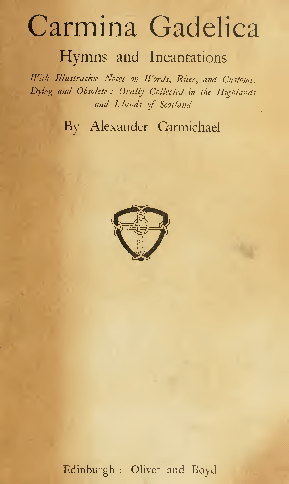
The Carmina Gadelica, often known as “The Hymns of the Gael,” is a collection of Carmichael’s writings that is renowned for its preservation of a native “Celtic” spirituality combining Christian and pre-Christian elements. Most of the material comes from the southern isles, particularly South Uist, where a Catholic tradition had allowed the preservation of what, in the Protestant north, would typically have been dismissed in relatively modern times as “superstitions.” Carmichael does provide a small amount of material from Lewis and Harris. Because they were re-evangelized by Franciscan missionaries who were sympathetic to nature spirituality during the Reformation, the southern isles may have been more receptive to “nature religion” than other Catholic regions. Several academics have informally questioned, but have not yet conducted research on, the extent to which disparities between Catholic and Protestant interpretations of Hebridean tradition have influenced Carmichael study during the past century.
It is also believed he embellished and mispresented a lot of the material he collected to suit his own version of the information he was finding out. It is clear from Carmichael’s manuscripts he was prepared to hone, polish, even rewrite substantial portions of his original material before publishing, smoothing metre, cadence, and rhyme, heightening and refining language, adding esoteric referents, even introducing obscure vocabulary to enhance the impact which the hymns and charms – and indeed the quotations from the informants themselves – would exert upon the reader of the Carmina Gadelica. Although Carmina Gadelica remains a controversial text, its volumes must be read in the context of Carmichael’s own times, a period of widespread political strife in the Highlands, when habitual contempt of Gaels, their language and their culture was widespread and publicly expressed.
‘Carmina Gadelica is not a monumental exercise in literary fabrication nor, on the other hand, is it a transcript of ancient poems and spells reproduced exactly in the form in which they survived in oral tradition.’Despite its flaws, Carmina Gadelica remains an indispensable source for the popular culture, customs, beliefs, and way of life of Scottish Gaels in the nineteenth century”.
Gaelic scholar Dr John MacInnes,
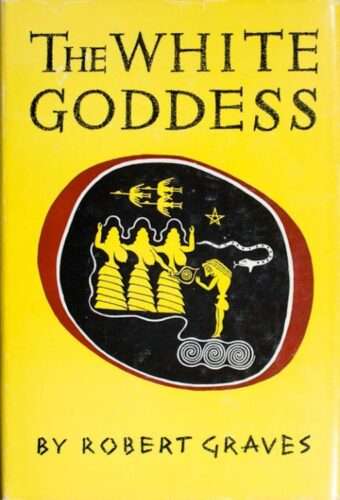
Robert was a skilled poet and author, but he had very little knowledge of Celtic Myth. Ironically Roberts grandfather was the president of the Royal Irish Academy, a Celtic Scholar, yet he seems to have not learned anything from his contacts who devoted their lives to the translations of these medieval texts. The White Goddess is based on fabrications of Robert Graves and of other men like Edward Davies and Iolo Morgannwg (Renowned forger and collector of medieval Welsh documents, and godfather of the mesodruid phenomenon, which was greatly influenced by his involvement with Freemasonry) and a completely made-up reading of the book of Taliesin. He even makes up stuff when it doesn’t suit him or the pattern he is building, he either ignores or changes it and adds in his own or forges ideas.
Because of this absolutely travesty of a book we have in the Neo Pagan and Wicca/Witchcraft communities’ ideas of the Triple goddess (mother maiden crone) the Oak king and the holy king and a Celtic Tree calendar (based on Ogham script this isn’t also a real thing though we do have a tree related Ogham but that’s something entirely different) and a few fake gods thrown in there for good measure. Graves also suggested The Tuatha Dé Danann are Greek and Hebrew and Ogham is embedded with references to Hebrew and Greek myth.
Both publications (and there are a lot more to choose form) demonstrate the issues that surround borrowing from cultures from an English-speaking cultural context. It demonstrates how these scholars who work for and are supported by the establishment can take information from common working-class folk, the folklore, and myths of a culture, and completely change it to suit their own needs.
Nothing raises a Gaelic speakers’ eyebrows more than a mystical Gaelic Quote in the front of a book written by an English person -it’s a red flag for a reason today. Scottish people have had a very rocky relationship with England and to understand the state of appropriation we are facing today we need to explore this very troubled relationship.
Please remind yourself though when I’m saying England I’m not talking about the people of England, I’m pointing my finger to the English Establishment. I have a lot of English pals and a love for humankind.
What follows is a very short cliff notes version of oppression of Scotland by the English Establishment I do mean short, if this interests you, please go read more about it all.
There have always been border skirmishes on this island. The Picts and the Romans for example, we could go that far back but I’ll gloss over a few points and start about a thousand years ago.
Scotland has a huge history of being at war with England, we have the Scottish wars of independence from 1296 – 1357. There were a lot of Scottish kingdoms and Anglo-Saxon kingdoms roughly where there are today that were in constant tension with one another. We also fought each other within the kingdoms to so it wasn’t as if one was peaceful, and one wasn’t. King Edward had conquered western Wales and set his sights on Scotland and conquered the Northern kingdom of Scotland (The first battle of independence is the well-known Braveheart Movie). Scotland fought the battles of independence with our sovereignty intact. In fact, Scotland remained sovereign until we formed a union with England as Great Britain in 1707. Before this, when Queen Elizabeth died in 1603 following the reformation, the next person in line to the throne was King James VI of Scotland, who became king James I of England once Queen Elizabeth had passed.
It was in King James reign the Scottish Witchcraft hysteria started.
It was in 1661 Scottish Gaelic was outlawed.
It wasn’t until 1707 where we lost our sovereignty fully when the act of union was passed through fair means and foul. The last Attempt at maintaining our own sovereignty was all but destroyed at the Battle of Culloden in 1745 to try to reinstate a Stuart on the throne (who would have had Scottish blood) and the end of Scottish culture as we knew it.
The Act of Union was devastating to Scotland, it banned language, and dress and ways of life. A system of legalised segregation was put in place depriving Scottish people of political and civil rights. Scottish rule was given over to Westminster parliament. Further suppression followed the Jacobite rebellion and the battle of Culloden.
53 years later – Scotland was targeted for clearances. The lowland and highland clearances sent huge amounts of people from Scotland to other countries replaced by sheep as they were seen as more profitable than people and this followed from the famine. Whole communities lost their way of life– leaving us with an elderly population who couldn’t for whatever reason move and needed to be relocated.
It must be remembered by this time the surviving Geals were viewed as simple and backwards people trying to hold onto a way of life. Too stupid to care for themselves and at the fringes of society. A view Alexander Carmicheal wanted to change through his work. This is how anglicised our culture had become – our own people were viewed as a burden. A problem to solve by our own people. The clearances offered a solution – folks were “offered” tickets in exchange for indentured slavery to pay off the debt once they arrived in America, Australia or other destinations. The clearances ran from 1760 – 1830 (edit I incorrectly said this the true date is up until 1880’s thanks for the correction readers and you can red more about these awful times here).
It’s worth pausing here to think about our people.
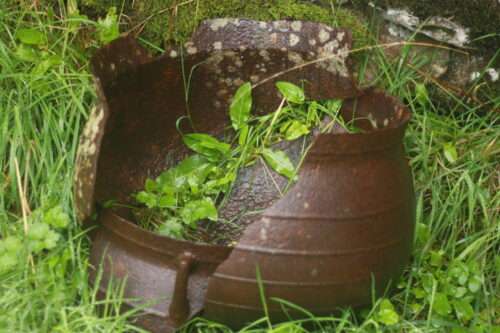
Scottish Cultural Appropriation impacts us in many ways. Scottish people are working people who had a relationship to the land they lived on and close ties to each other. They didn’t know other ways of living and still held onto the way of life of reciprocity and what I’ve called equity consciousness elsewhere and in other talks. These are the foundational elements of Scottish folk practice and communities outside of capitalism. The English Establishment with the increasing help of an Edinburgh based government actively prevented this way of life and suppressed our people. Since the 13th century, once the norse influence were removed in 1266, the way of life has been protected by the people these “wild, wykked Hieland-men”– not necessary the elite or the aristocracy and its associated establishment. These people were proud of their way of life and highly educated in an oral tradition. They weren’t these backwards savages they were portrayed as.
Largely abandoned by the ruling classes the folk of Scotland have had to get by the best they can. You had a lot of common people and a few more well-off folks but mostly the folk went on to become the working class of today’s Scotland and the work force of the industrial revolution. For our people to survive it meant they had to form education unions, social and land-based movements and used our knowledge to protect the culture, traditions, and language of our people where and how we could.
If you’re interested in this, you should explore the Highland Land League and other movements that led to the politics of today and the formation of the Scottish National Party.
I don’t want to go into this more. I don’t want to duplicate the amazing work of others in this area and don’t want to divert into these issues even though they are so important. It’s enough to say the cultural holders of the folk ways and knowledge were the folks ignored and side lined into their own poverty by the ruling classes aka the English establishment as it embedded in Scotland elites as well.
We are proud of our heritage and stories, ways of life and language despite all the establishment has done to try and remove it from us.
Through the reformation a lot of these folk also turned their back on more pagan ways and continued to be non-conformist Christians or protestants. However, a lot of the previous folk traditions, folk magic and beliefs were syncretised into Christianity. It wasn’t too much of a step change. This is a reality and is attested to by the collecting work of the modern antiquarians like Alexander Carmichael (with all its faults) and others up until the middle of the 19th century.
We have a group of people in Scotland, who the ruling classes and establishment have done awful things to but unite under their culture and non-conformist identity which provides them with a sense of unity. This unity as a culture is still at play today as we are still largely vilified by the English establishment and its allies – just look at the independence debate. This is the legacy we have inherited – and we are still fighting the legacy of this. We only got the right to roam in 2003, there are only about 70000 L1 fluent speakers of Gaelic, the Gaelic language act was only passed 2 years later in 2005. It was only 100 years ago school children were beaten for speaking Gaelic. I could list more but again please explore in your own time.
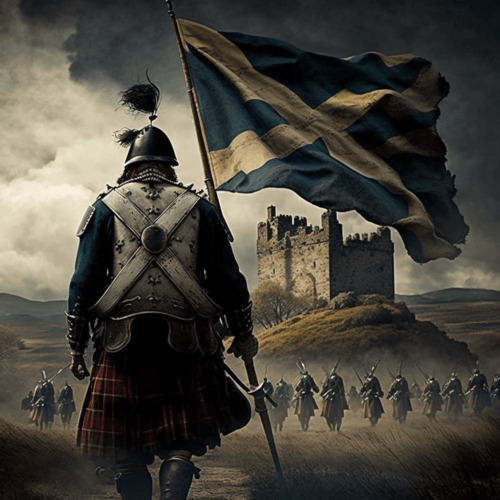
I guess by now, if you are still reading along you probably think I sound like a nationalist. I’ve been talking a lot about the English establishment as well. Let’s clarify a few things. I don’t hate the English at all, some of my good friends are English and, like us they are as flawed and as brilliant as any person.
However, I have issues with the English establishment that has done and still tries to do its best to keep us under the thumb. It feels like they have never moved passed seeing us as ignorant dumb folks who live in the hills. I think this sentiment is carried by any working-class folk in Cornwall, Ireland, Wales, and Isle of Man (and probably England in the North). However, to preserve language and culture and ways of life it’s a constant struggle against the establishment. This disdain for language and culture comes from both the left wing and right-wing areas of government, and nationalism has become a tool in the armoury of radical fascist parties in England and I don’t agree with any of that. Weaponizing someone’s cultural pride in their heritage to fight against other people is awful. We are still fighting for our sovereignty today through parliament.
So, imagine you are Scottish, and you have seen what the establishment has been trying to do over the last 1000 years and the fight we have had, and continue to have, to be taken seriously and then English folks come and take your knowledge all over again.
Now, as we move into the 1800’s the Antiquarians like Alexander Carmicheal – those who were basically turned on by the idea of a spiritual Britain – Imagine these highly educated elite mostly English and a few Scottish folks taking aspects of your culture, from the working classes, repackaging them and presenting them within their own cultural context. But now folks are calling it paganism or witchcraft or Druidry but you are pretty Christian by now as a culture and maybe the “pagan” past doesn’t sit to well with you. ( you can read about how this has impacted Scottish folk magic here) You have also Christianised your ancestral worship into the “Fairy” Faith and it’s something you now avoid. (The word Fairy is problematic to describe the Aos Sí but that is a whole other conversation).
It’s the people from the educational establishment essentially rewriting your culture to suit a romanticised view of what THEY think a Britain was like AFTER they sent all the people away on boats this culture belongs to. They essentially mined the working classes who remain, sometimes through offers of money and food, for information to create a romanticised version of a spiritual pagan Britain. What makes it worse is it’s the representation of people who have been oppressing you for ages decades doing this – it’s the bloody English.
Around the same time in the 1800’s a Celtic revival or Celtic Twilight was happening which further poeticised our traditions and culture. (If it was a true revival the Gaelic language would have been revised but it wasn’t a true revival mainly an artistic and poetic one). It’s this kind of of poetic license and misrepresentation the likes of Robert Graves were fond of. It is really no surprise he was the foundation of solid work didn’t exist in the mainstream. The establishment felt they could do what they liked with our stories. The Celtic revival was a good thing in a way though bringing back a focus on our stories and ways of life even if it was weirdly represented in English speaking culture.
So now imagine this writing misrepresenting your culture is taken by people to recreate a paganism with very little in common with the culture it came from – here I’m talking about Neo Druidry established in the 1800’s as well as Wicca and Traditional Witchcraft in the forms that followed in the mid 20th century. They even took the names of our holy community days (Bealtainn, Samhuinn etc and placed them within a wheel of a year we don’t recognise…) building on the same weird assumptions established by these cultural grave diggers.
What’s even more disturbing you have people still today claiming their witchcraft or paganism is REALLY OLD, it’s not, given everything we have talked about its new.
Through the lens I have provided I hope you can see the problem with why some Scottish, Welsh and Irish and Cornish and Manx folk get narked about this. And you know what’s even worse? It’s now being sold back to us as truth, sold back to the very people it was taken from because our social and cultural connections are getting ever more fragile and worn. Now that is appropriation at its worse in my mind.
There is a strange assumption that Scottish folk are some holder so long forgotten lore and tradition in the Anglo-American pagan and witchcraft scene (well at least up until 10 – 15 years ago – better writing is coming out today). I don’t recognise many of the Scottish folk traditions and customs as I have come to see them in the research of the texts and oral stories I explore in these publications.

I know what I’m saying is maybe making me no friends, but it needs to be said. We have only really started to step into reliable translations of things since the millennium and we are more and more aware of the issues these publications have had. Sadly, a lot of this misinformation’s now in public ideology – the triple goddess of graves invention, the oak and the holy king, the Celtic tree calendar I see repeatedly as if its real – it’s not going anywhere.
It doesn’t help the English/American spokespeople for these groups and movements don’t speak to the reality of this. The problem exists where the leader of these movements and groups insists there is some deep link to the past. There isn’t. The fact that there is an eco racism and racist nationalism on the rise because of this is a HUGE problem. The legitimacy of heritage to oppress other people isn’t ok. It’s what the English Establishment has been doing to us for years.
I’m not saying there is no value to these pagan, witchcraft, Wicca and druidic movements. Not what I’m saying at all. They have their own lore and canon and ways of doing things which are really beautiful and moving in their own way. But does it hold any relationship to the druids I read about in the text or the bards I read about in the texts? Not so much. Do witches today hold any similarities to the welders of magic in the past or in the witchcraft trials I explore? No, not really at all, and they were only ever called witches by the Establishment that sought to oppress them. However, a lot of writers and scholars today I have a lot of time for and take a lot of value from their writings. I have a lot of pagan, witchcraft, and witchcraft adjacent friends, who know how I feel about all this and it’s fine. No one gets butt hurt about it because we can exist in a pluralistic space. I’m a great lover of humanity and all its beautiful traditions and ways of life.
I hope you can see it’s no surprise Scottish folk can get a little bit narked with all this – the endless retreats, stone stacking at sacred sites and clooties left outside of tradition and generally folks coming here to peddle a version of their spirituality that is a faded mirror image of what we did have in our past. Repackaged and resold to us.
Now consider my situation. I’m Scottish. I was educated in an English education system in a Church of England school with prayers and all that malarky. I had no access to my own history. My mother, who is Scottish, ashamed of her heritage and history as she tried to fit in in England. I had no access to my own langue of Doric, Scots, or Gaelic. I’m having to relearn all this stuff I didn’t have a chance to learn growing up.
I’ve also been through a lot of education in Scotland Colleges and Universities. As a working-class person this was a shock to the system, but I managed to leave with Two master’s degrees and my eye on a PhD, but I’m too skint to afford that luxury – luckily University tuition undergraduate education in Scotland is free. I’m also not interested in the Christian culture of Scotland. I am interested in the folk culture of my people, people like me, and gathering stories and oral histories and encouraging people to embrace their culture and community heritage through conservation of sacred sites like wells and standing stones. I’m also exploring the pagan and non-Christian survivals of our culture – which isn’t the coolest thing to do in academia.
I’ve been writing about this since 2008 in one form or another and this website for the last 10 years. To get to where I have in the understanding I have, I have had to wade through a lot of inaccurate writing and authorship. It’s hard work. It’s made harder by being in this weird niche of not part of a witchcraft community, not really part of a pagan community and not really part of an academic community.
There is a non-Christian spirituality preserved in Scotland’s traditions, stories, and texts, but it doesn’t look like religion. We need to uncouple ourselves a bit from the Christianity we have inherited where in religion there needs to be a building and a priest and a big book and rituals etc. The spirituality of our ancestors doesn’t look like how it has been presented in the last 250 years either in English Language Culture.
Witchcraft, Druidry and Paganism has a wonderful ritual structure all its own. It has a knowledge base body of lore which IS valid and useful, and it makes sense to people and works for people. I think it’s great, but it’s not what I find when I look at my research and explores the stories and experiences of the folk who carried this knowledge through the years. The working-class folks’ stories, the medieval texts and witch trial testimony. So, this is why I’m exploring the mythology and wisdom traditions these older texts hold and the stories my people have. This is maybe my own folly but I’m pretty convinced what I’m looking for doesn’t look like what’s held in English Language culture esoteric cultures or Academia on the subject.
There are two poles of different camps in a way. The paganism, witchcraft, druidry camps and the academy. Both affected by the influence of the Establishment.
So here is my dilemma. I really like the English-speaking pagan, witchcraft and druid communities. I have lots of friends in all these areas. I have a lot of time and admiration for the academic scholarship and present alongside them often but I would say they are both kind missing a point which I realise lands me in a place of authority but I’m not trying to say that …I don’t hold the Truth here , I’m not an expert and I’m not a cultural authority on these matters by any means. (I’d suggest of being wary of anyone who claims expertise here). These two different camps have too many vested interests to present the material in their own way.
A lot of the academy doesn’t want to have a conversation about paganism or folk ways in these old texts and they are focused on other things. Most of the modern English or Anglo-American Pagan Witchcraft druid scene isn’t that bothered as they are a lively, operating, working, viable community providing very profound cultural context for people. However, it isn’t reflective of our history due to being misguided and misrepresented through the action of the cultural agents we have already discussed. Also let’s be real – Witchcraft, Paganism and Druidry is BIG business for some people, if your business model is one based on legitimacy then you’re going to be buggered by changing your connection to that, right?
I see my role here as redeeming and reweaving these cultural artefacts into the light. A friend of mine uses the term forensic folklorist. I like that – so I’ve stolen it – it’s a great term for what I’m trying to do. There is so much more work to be done to uncover these native cultural traditions. To reweave them into a better understanding and relationship and to regift them to the folks they were wrested from originally. Its why my writing is free, and I will try to keep it free. I’m trying my best to not misrepresent these texts and where these stories come from. Common and working-class folk stories and ways of life need respected.
Our working class communities were and are intelligent and sophisticated enough to have oral traditions of this kind. Some academics view them with disdain and snobbery – they kind of view them as these stupid highland and lowlands uneducated folks – illiterate country folks who didn’t know what they were doing – again the impact of elite establishment in academic interactions.
To respect these traditions, I would say that folk need to do a better job of not misrepresenting the reality of these historical cultures and acknowledge there are people alive today, like me, whose cultural identity is deeply rooted and woven into these things.
I hope after reading this you may feel a little less confused by me, why I take the stance on things I do. I try to keep an open mind. There are probably different ways of reading the texts we all know, and love and we should be open to what this might be. Removing our own bias though is lifetimes work especially we are deeply entrenched in a belief system we get a lot of value from. We must also be mindful of this in how we operate and work alongside other cultures. If we cant even untie ourselves from this within our own backyard how are we even meant to tackle this on a wider global scale.
Your emails are one of the few I get which I read every single word of. They are always so interesting and deeply enlightening and I thank you for freely sharing your knowledge. I welcome your insights and I love all attempts to regain history of working class people throughout our isles, as opposed to what we have been taught as history. They are always food for thought , fascinating and enriching and you always leave me wanting more. X
Chris thank you so much for reaching out and letting me know this, it’s always encouraging to read my writing reaches people who appreciate it.
I’m learning so much from your posts. As an American with Scottish roots, all of this is buried in deep loamy earth that I don’t even live near enough to try and excavate. I’m glad I have the researched testimony of a forensic forklorist. Wish I could take you out for a meal and ask a million questions.
thanks so much 🙂 dinner and questions will have to wait though 😀
I loved your article. It resonates with me, especially things like the tourists leaving offerings to the fairys in the fairy glen in syke. Those lovely patterend stones were created by tourists! I was born in South uist. Looking forward to reading more of your work.
Right those stones !! tourist have even shouted at locals for removing them I hear lol
another wonderful article. it hits a lot of spots for me as a Scot. one tiny detail. The clearances didn’t stop in 1830. my great grandfather was cleared from a village called Ramisaig on Sky in the 1880s. Other than that, please please keep up the good work!
Thank you so so much for the correction and ive added it into the body text!
This article is so helpful. I very much appreciate you as a forensic folklorist! I live in the US and have Scottish, Norwegian, Irish, English, and Welsh ancestry, but one side of my family has carried a deep sense of belonging to Scotland in particular. I am unsettled by the fact that Wicca still informs modern paganism — and the appropriation involved in Wicca is cringey at best and harmful at its worst. I’m trying to detach my spirituality from any prescriptive traditions. It’s tricky. Community brings the baggage of every one of us! But also, I love mythology. Are there any sources you’d recommend reading for Scottish mythology?
Thank you so much for this very nuanced discussion- in an internet world of black and white, it’s so good to see a sensitive treatment of a difficult topic. As a socialist (and an American whose ancestors were Gaelic speaking people of the British Isles), I am deeply suspicious of the idea of “history” anyway. “History” is basically a weaponized retelling of what happened in the past to cement the “natural order.” Enterprising folks can sense the soul-longing of people in today’s culturally homogeneous and spiritually devoid landscape, and choose to sell yet another retelling of the ways things used to be—with the keyword being sell. These retellings again assert that the only way to come into communion with our ancestors is through buying something. The real thing, actually connecting with the land and the other-than-human (and human!) inhabitants thereof would be so profoundly disruptive to the status quo that the establishment fears it with all its heart. It is my deepest wish that us working class folks can connect in that way and make that change.
I found your site today and am very impressed. Thank you for this article as it ticks a lot of boxes for me. I am from Orkney originally, a small island called Rousay. Growing up a lot of the old ways were still there and I brought them with me when I moved to mainland Scotland. The clearances did carry on, my uncle Tommy and his family were moved on from their land to make way for sheep. The nickname of the Laird who did this was The Little General, there is a book written about him if anyone is interested. I completely get where you are coming from as on Rousay we have a wealth of tombs and brochs that have been excavated over the years. I was lucky as a child we were taught our Viking history and what we knew about the Picts in school. A lot of the old people would hide things in stories and being a good listener I was able to pick out the hidden meanings. A wealth of hidden traditions and peoples. Selkies, Finn Folk, Trows, Faeries and other beings all lived beside the people and these were not to be triffled with lightly. Thank you so much for this article.
what a rich landscape and mythic scape to grow up with and involved in, thanks for the kind comment and liking the website I really appreciate it.
Absolutely brilliant article, thankyou. If witchcraft is essentially about ‘knowing’, then I believe that is exactly where you fit 😊. Thankyou for sharing. X
thanks for your kind comment 🙂
Just read this article and it was very moving. Especially the idea of people being made ashamed of their culture. I’m part of the diaspora (Scots, English, and German ancestry for sure, with others possibly unclear), and even growing up with my mom and grandparents, I really wasn’t passed down any cultural traditions. We just had whatever music was on the radio, whatever movies were in theaters, whatever stories the bookstore had, etc. Consumerism as culture. In the diaspora, so many of us were encouraged to essentially sell our cultures for the promise of the American Dream, and then my generation was born without that even being a possibility.
I always had the feeling that the whole triple goddess and Oak King/ Holly King didn’t ring true. It’s a relief to hear that from you. Also the idea of calling on specific one dimensional dieties for things seems silly and rude. Imagine calling up certain friends because they are going to be helpful for certain tasks.
Thank you. I come to your website for knowledge because I’m part of the diaspora that was affected by the clearing of the highlands, among other events. I grew up with proud knowledge of my Scottish heritage, but the folk practices have been lost in the assimilation to American culture. It’s so hard to find information that isn’t colored by Wicca, and I’m so glad to have found you.
thanks for commenting I appreciate it 🙂
Just wanted to write a thank you for all of this. There’s so much information out there to sort through and so many claims that it’s difficult to know where to look as someone who is new and still learning.
I’m an American with Scottish ancestry, whose ancestors immigrated to Canada and the U.S. in the late 1800s (the American side came west with the Mormons). After a hard exit from Mormonism, I wanted to explore and learn more about folk traditions that may have evolved or been lost in my family over the generations. It looks like a lot of other people are in the same situation with me on this.
Wicca & Druidry felt a bit off to me when I started doing research. It’s a feeling based on my experiences with Mormonism and its recent origins and dubious claims (the founders of Mormonism actually practiced various folk magics in the 1800s coincidentally). It’s been a lot of reading various books, blogs and forums, but it did lead me here at some point.
Apologies for the long comment, just excited to have found your site. Again, thank you for all the work you’ve done here!
I love a long comment don’t apologise! I think druid and Wicca is its own thing and beautiful in their own ways but its linked but distinct from the practices of are traditions – I guess I cover all of this in the words above. Please feel free to comment along on anything you liek I do my best to reply to any and all questions I can and have the energy to ! Thank you for your kind words.
Hi! I just wanted to say
tapadh leat for the important work you’re doing – arguably the kind of dedicated community cultural-historical-spiritual service worthy of the title ‘druid’ in the recon sense. I’m a working-class academic and was raised a proud Scot, despite living in Canadian diaspora as a white settler. I do research on colonization and Indigenous resurgence here, but have maintained personal side research into Gaelic folk practice for many years, and there’s a lot of striking parallels. Again, many thanks for regifting this back to me. If you’d ever be interested in emailing or discussing more I’d love to.
Thanks is much for your kind words but I wouldn’t class myself as Druid in any sense of the word but I appreciate your sentiment. Always happy to chat abotu these things more in different areas of things so please do reach out 🙂
Hi, I’m not Celtic, my grandparents are from Newfoundland, but I haven’t seen them since I was very young, and I don’t think blood relations mean much anyway, but growing up my mom always used to call me a selkie, and said I had sad or longing eyes, and Ive grown attached to this as it reminds me of my mother and my childhood, and i relate to the themes of transformation, and I love the ocean but I do feel safer in lakes, but obviously it’s not my culture and I don’t want to appropriate it, i just feel a connection to it because it’s what my mom used to call me, and I wonder if I can use the myth/story as a metaphorical guide in transforming to my true self, or literally live somewhere close to the sea. I find myself wishing I had a culture, as being a Canadian we really don’t have myths or stories, and I’m disconnected from my extended family as well, but I know that’s not a reason to steal
A story, especially one carried din a family is an important one. Celtic is a wide term we tend not to really apply unless it’s in a general sense ( like European for example) but I understand your meaning. Stories of the Selkies are found in story books and in tellings all over the place and, personally, being inspired by an idea in a folktale that traveled with the diaspora is not appropriative and I don’t personally see it as an issue. Im sure there are lots of stories in Canada you might just not know? You might like to read the work of Dr Micheal Newton for more on this, his work focuses on Gaels in the diaspora especially Canada and America. Perhaps you might want to find story tellers in your area and approach the First Nations people to hear what tale are of the land and space you live maybe there are similar tales form your shores of similar stories which will help weave you back into connection.